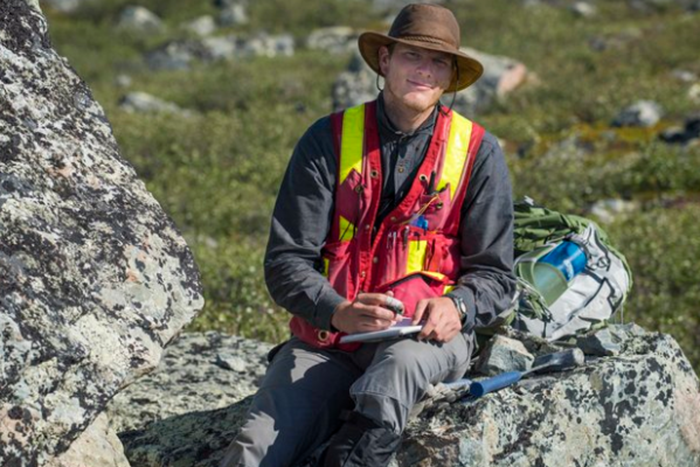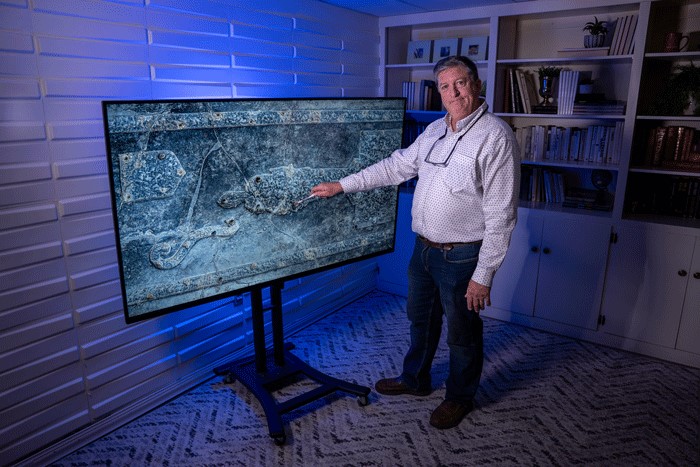
Taking College by Storm
Posse Scholar Amiya Marbles '26 has presented original research, gotten involved on campus and volunteered abroad. Now fulfilling a dream by studying in Africa, she plans to one day found a nonprofit.
The geosciences span and integrate the five major Earth systems: the atmosphere, oceans, soils, organisms and solid earth both past and present. The geosciences curriculum at Dickinson provides students with experiences that foster critical thinking about these systems, so that students make connections among the systems and can understand how they impact humans now and in the future.
We do this in a variety of ways, like providing opportunities for deeper understanding through lecture and discussion, experimental and analytical laboratory work, fieldwork and independent study and research. We prepare students for the challenges of providing mineral, energy and water resources sustainably; mitigating environmental pollution and hazards; and informing the public about the challenges ahead through teaching, research and community engagement.
"It could forcefully be argued that geology and the broader fields of the earth sciences are the most important sciences for the 21st century, because humanity has only this one planet as a home, and if we render it unsuitable for human habitation we are all in serious trouble." —Alvarez & Leitao, Geology 38, 231-4, 2010
The geosciences department is one of the most globally integrated departments at Dickinson with 100% of our faculty having published with international collaborators and 80% having field areas outside of the U.S. The earth sciences curriculum and faculty expertise cover a broad range of disciplinary and interdisciplinary topics from structural geology to global climate change; from paleontology to energy resources; and from Earth materials to natural hazards taught in a research- and project-based environment using research-grade analytical instrumentation.
Each course has a field component utilizing the diversity of the local and regional geology. A field trip endowment allows students to learn farther afield. Recent destinations have included Southern California, New Mexico, Sicily, the UK, Iceland and the island of Montserrat.
Jobs
Grad schools
“Earth sciences is great, because it utilizes a little bit of every single topic found in STEAM curricula. As someone who has always loved science, I could never decide to study just one area of it. Majoring in earth sciences, I get to enjoy the best parts of all of them, along with my hobby of map-making.”
— Christian Knight ’23

Posse Scholar Amiya Marbles '26 has presented original research, gotten involved on campus and volunteered abroad. Now fulfilling a dream by studying in Africa, she plans to one day found a nonprofit.

Dickinson will welcome Kirk Johnson of the Smithsonian National Museum of Natural History as the featured speaker for the 22nd annual Potter Lecture.

The artist visits Dickinson Oct. 14 to give a public talk about her work, on view at the Goodyear Gallery through Nov. 12. The work explores geological data, especially relating to climate change.

Geoscientist and Penn State University Professor Jesse R. Reimink will deliver the special lecture “How Does Earth Get Distilled? The Reawakening of Geosciences in Society.”

Last year, Jason Cutshall '96 hired two Dickinson grads for his growing team. This year, all three Dickinsonians returned to campus to meet with students and illuminate paths to success in consulting.

Research by Marcus Key and Rebecca Rossi ’12 on 400-year-old tombstone uncovers the history of long-studied artifact.